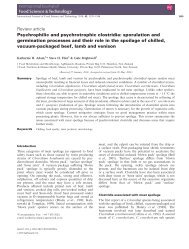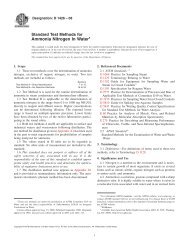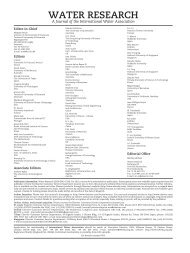Bad Astronomy: Misconceptions and Misuses Revealed, from ...
Bad Astronomy: Misconceptions and Misuses Revealed, from ...
Bad Astronomy: Misconceptions and Misuses Revealed, from ...
Create successful ePaper yourself
Turn your PDF publications into a flip-book with our unique Google optimized e-Paper software.
BAD ASTRONOMY GOES HOLLYWOOD 251<br />
its journey when Australopithecus afarensis was the most intelligent<br />
primate on the planet. And that’s the nearest spiral. Most galaxies<br />
you can see with a modest telescope are a hundred-million<br />
light-years away or more.<br />
Now, doesn’t it seem faintly ridiculous for aliens to travel <strong>from</strong><br />
some distant galaxy to the Earth? After all, the distances are pretty<br />
fierce, <strong>and</strong> they have many, many stars to plunder <strong>and</strong> pillage in<br />
their own backyard. Science-fiction movie writers tend to confuse<br />
“galaxy,” “universe,” <strong>and</strong> “star” quite a bit. The 1997 NBC madefor-TV<br />
movie, Invasion, was advertised as having aliens travel<br />
“over a million miles” to get here. Ironically, ad writers wanted<br />
that distance to sound huge, but consider this: the Moon is only a<br />
quarter of a million miles away, <strong>and</strong> the nearest planet about 25<br />
million miles away. The nearest star to the Sun, Alpha Centauri, is<br />
26 million-million miles away. It sounds like they grossly underestimated<br />
the size of the gas tanks on the alien ships.<br />
6. . . . to steal all of Earth’s precious water . . .<br />
This is my personal favorite. It was used in the 1980s TV movie,<br />
V, <strong>and</strong> countless other pulp sci-fi movies. This may have started<br />
in the late 1800s, when astronomer Percival Lowell thought he saw<br />
canals on Mars <strong>and</strong> concluded that the planet was drying up.<br />
Obviously, an advanced race was trying to save itself via irrigation.<br />
Unfortunately, what he really saw were faint features on Mars that<br />
his all-too-human brain tried to connect up in his imagination.<br />
There are no canals on Mars.<br />
On the face of it, that aliens want our water seems plausible:<br />
look at all the water we have on Earth. Our planet is three-quarters<br />
covered in it! Desperate for water, what would our proposed aliens<br />
do? After looking toward our blue world with envious eyes <strong>and</strong><br />
parched tongues (or whatever they had in their mouths, if they<br />
even had mouths), would they come all the way in to the center of<br />
the solar system, using up huge amounts of energy to get in <strong>and</strong><br />
out of the steepest part of the Sun’s <strong>and</strong> Earth’s gravity wells, to<br />
suck up water in its very inconvenient liquid form?<br />
No way. Water is everywhere in the solar system. Every outer<br />
moon in our system has quite a bit of frozen water. Saturn’s rings
















